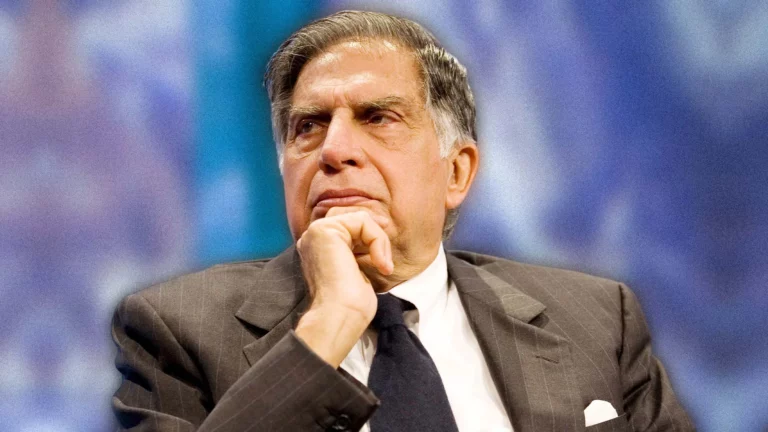Ratan Tata, the former chairman of Tata Sons and one of India’s most respected industrialists, has played a significant role in transforming the Tata Group into a global powerhouse. With a legacy of leadership and a commitment to philanthropy, Ratan Tata’s influence extends far beyond his corporate achievements. Despite overseeing a conglomerate that generates billions of dollars in revenue, Ratan Tata does not appear on the lists of the world’s richest people. This raises an intriguing question: Why isn’t Ratan Tata among the world’s wealthiest individuals?
1. Ownership Structure of Tata Group
The Tata Group, founded in 1868 by Jamsetji Tata, is one of India’s largest and oldest conglomerates. The ownership structure of the Tata Group is unique and is one of the key reasons why Ratan Tata’s personal wealth is not as astronomical as one might expect. A significant portion of the Tata Group’s wealth is held by various charitable trusts, most notably the Sir Dorabji Tata Trust and the Sir Ratan Tata Trust.
These trusts own about 66% of Tata Sons, the holding company of the Tata Group. The profits generated by the Tata Group companies are largely reinvested into these trusts, which fund a variety of charitable activities, including healthcare, education, and rural development. As a result, while the Tata Group’s enterprises generate significant revenue, the wealth is not concentrated in the hands of a single individual, including Ratan Tata.
2. Ratan Tata’s Modesty and Philanthropy
Ratan Tata is known for his modest lifestyle and his commitment to philanthropy. Unlike many billionaires who accumulate personal wealth, Ratan Tata has always prioritized the broader societal impact of his work. His vision for the Tata Group has been rooted in the belief that businesses should work for the welfare of the people and contribute to nation-building.
Throughout his career, Ratan Tata has emphasized the importance of giving back to society. Under his leadership, the Tata Group has continued its tradition of philanthropy, supporting numerous social initiatives. His personal wealth is modest because he has chosen to align his life with the values of the Tata Trusts, which focus on social good rather than personal gain.
3. The Role of the Tata Trusts
The Tata Trusts, which hold the majority stake in Tata Sons, are deeply involved in philanthropic activities. These trusts are dedicated to various causes, including healthcare, education, rural development, and art and culture. The income generated by the Tata Group’s companies flows into these trusts, which then disburse funds for social causes.
The trusts are legally structured in a way that separates them from the personal wealth of the Tata family. This means that while Ratan Tata may have influence over the trusts, the assets are not his personal property. The wealth managed by the Tata Trusts is used for public good, further reducing the personal fortune attributed to Ratan Tata.
4. Focus on Long-Term Impact Over Personal Wealth
Ratan Tata’s leadership has always been characterized by a long-term vision that prioritizes the sustainable growth of the Tata Group and the welfare of society. His focus has been on building a legacy that transcends personal wealth. By investing in social enterprises, supporting innovative technologies, and fostering global collaborations, Ratan Tata has ensured that the Tata Group remains a force for good in the world.
This focus on long-term impact over personal wealth is another reason why Ratan Tata is not among the world’s richest individuals. His contributions to society cannot be measured by personal wealth alone, as his influence extends into various spheres, including industry, philanthropy, and nation-building.
Conclusion
Ratan Tata’s absence from the lists of the world’s richest people is not a reflection of his lack of success or influence. Rather, it is a testament to his unique approach to wealth and his commitment to philanthropy. The structure of the Tata Group, the role of the Tata Trusts, and Ratan Tata’s own values have ensured that the wealth generated by the conglomerate benefits society at large rather than accumulating in the hands of a single individual. In a world where personal wealth is often seen as the ultimate measure of success, Ratan Tata stands out as an example of how true impact can be measured by the positive change one brings to society.

